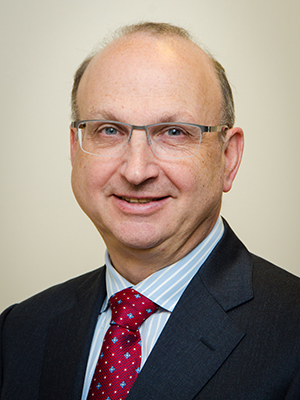Message from Norman Rosenblum, INMD Scientific Director
September 2024

The INMD vision is to ‘catalyze world-leading research that promotes optimal and equitable nutrition and metabolic health outcomes for Canadians’. This vision is described in greater detail in the INMD Strategic Plan 2021-26 that spans discovery, therapeutics, and translation with a particular focus on heterogeneity, health equity, and building capacity within our research community.
Heterogeneity has been a focus for INMD, as it has been for other funders. In June of 2021, INMD convened an international symposium together with the National Institute of Diabetes, Digestive and Kidney Disease (NIDDK) of the US National Institutes of Health (NIH) entitled, Heterogeneity of Diabetes: Beta Cells, Phenotypes and Precision Medicine. This resulted in a publication that was released simultaneously in three peer reviewed journals, including the Canadian Journal of DiabetesFootnote 1.
I am pleased to continue to work on this theme under the leadership of colleagues at the NIH-NIDDK. This work resulted in a recent publication, A global initiative to deliver precision health in diabetesFootnote 2, based on a Workshop held in 2023 and subsequent work which has engaged funders and research leaders from many countries, including Canada, to better understand the heterogeneity of type 2 diabetes (T2D) beyond biology, to consider lifestyle, nutritional, environmental, social, behavioral, and structural factors.
- Research Gaps: the need for global redefinition of diabetes subtypes; integration of multiple data sources; inclusion of data from drug trials; development of scalable inexpensive assays for biomarkers; inclusion of clinical, social, and behavioral factors; incorporation of diversity; integration of complex data tools; standardization; and incorporation of the age continuum.
- The widespread interest (and investment) worldwide in heterogeneity of diabetes and precision medicine.
- The opportunity to leverage major diverse datasets and momentum to make these datasets widely available.
- The urgent need for global coordination in these efforts with inclusive representation from Africa, Indigenous people of the Americas, and the Pacific, the Middle East, and Latin America.
This work will continue over the coming months under the leadership of Dr. William Cefalu, Director, Division of Diabetes, Endocrinology and Metabolic Diseases at NIH-NIDDK, who also is a member of the INMD Institute Advisory Board. It is encouraging to be a part of this global collaboration towards “precision diabetology”, which aims to delineate subgroups of the population with diabetes with distinct features to better tailor diagnostic, preventive, and management strategies.
These precision approaches could result in the prevention or delayed onset of diabetes and its complications, improved response to treatment with fewer adverse events, improved patient adherence and satisfaction, decreased morbidity and mortality, and lower costs to both affected people and society.
Norman Rosenblum, MD, FRCPC, FCAHS
Scientific Director
Institute of Nutrition, Metabolism and Diabetes
- Date modified: